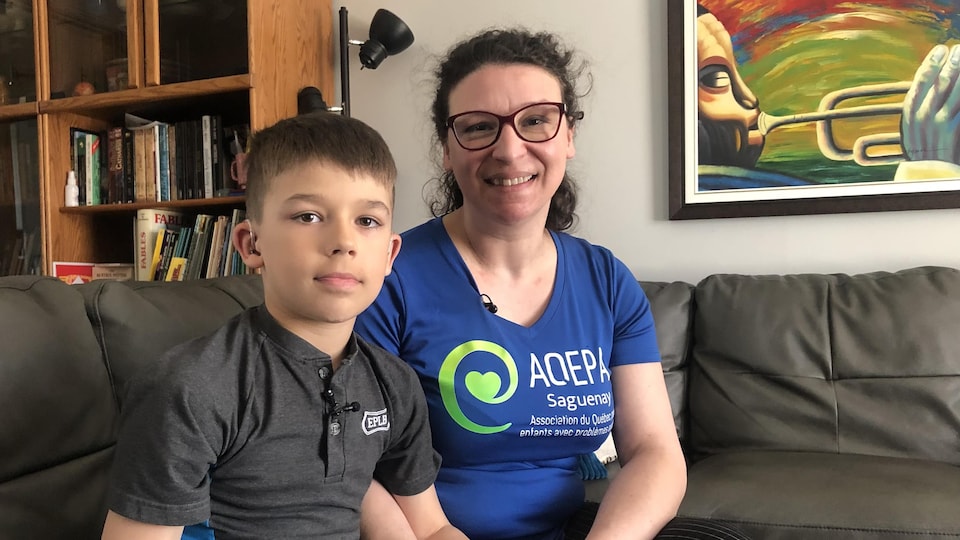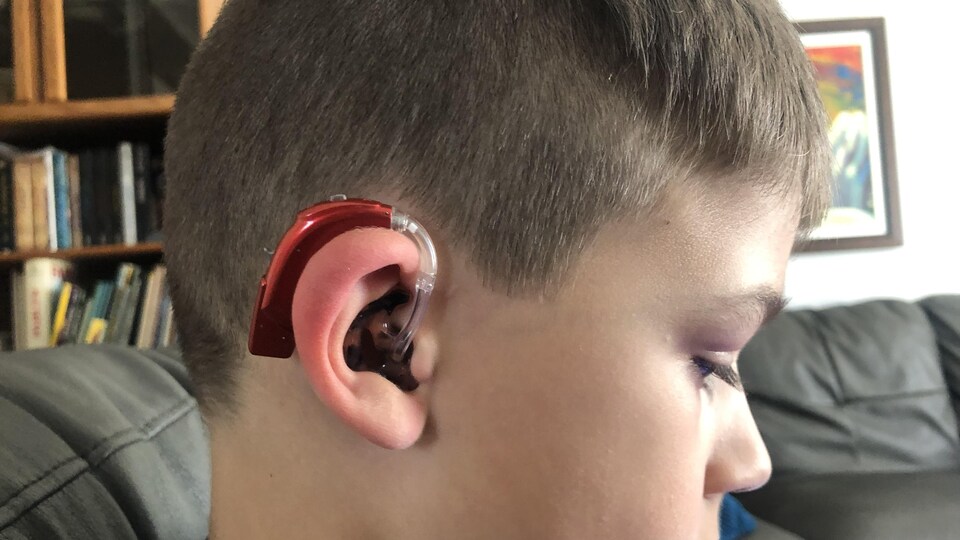Two years. Vincent was that old when he was diagnosed with deafness. Her problem can be diagnosed at birth, but she was born in a hospital that does not offer this type of testing.
The Quebec Newborn Hearing Screening Program (PQDSN) has been in place for nine years. A year ago to this day, on May 11, 2021, the National Assembly adopted a unanimous motion urging the government to complete its deployment by the end of 2021.
However, clearly a year later, we’re pretty much on the same point: 47% of babies in Quebec still don’t pass the screening test for birth deafness, that’s 37,861 newborns out of 80,145.
Only 20 institutions currently offer the program. Some regions such as Côte-Nord, Nord-du-Québec, Saguenay or Outaouais are not served at all.
The Ordre des orthophonistes et audiologistes du Québec calls on the government to show leadership in this matter. According to the organization, some hospitals already have the necessary equipment without using it. Nurses or nursing assistants conducting tests must pass a small training to perform screening.
Screening for hearing loss in newborns is simple and time consuming [15 minutes]. Delays cannot be attributed solely to COVID-19 or labor shortages. The statistics of other provinces in Canada illustrate this very well.said President Paul-André Gallant.
In British Columbia, 97% of babies are screened at birth. In Ontario, this percentage is over 94%.
” Someone has to take the case and take care of it! “
The office of the Minister for Health and Social Services, Lionel Carmant, said that next year, nearly 8,000 additional newborns will have access to screening. We are continuing to implement work in several regions to offer PQDSN to all newborns. It is important to note that all infants with one or more risk factors for deafness are recommended for screening.
Without such screening, deafness is often undetected at birth. However, it is the second most common disease in children. Every year, four to six out of every 1,000 babies are born with hearing loss. More than 90% of babies born with hearing loss have hearing parents, who therefore do not suspect this possibility.said Paul-André Gallant.
Impact on development
This is what happened to little Vincent who was born in a hospital in Chicoutimi. Her parents have no hearing problems. Even then, Lily Gilot doesn’t remember being asked about the history of deafness when her son was born.
I started to have doubts at age one, because he had extreme temperament: he was banging his head on the wall, he was trying to talk to us, but we couldn’t understand, we had to shout to let him react, he cries too. There is no half sizehe says.
He first considered intellectual disability, or autism spectrum disorder.
He was finally at the age of two when he took his first hearing tests, which were recommended by a friend the speech therapist. I found myself, in the cabin, my baby sitting with me, not responding to any sound stimulus and there I immediately understoodsaid Lily Gilot.
According to Paul-André Gallant, the slope is more difficult to climb for a kid like Vincent.
Hearing is a prelude first of all to the language and to all of the child’s interactions. It is important to know that a baby is hard to hear once he or she is born because his or her entire development is compromised afterwards.he explains.
” Vincent had a great period of behavioral relapse, during which he was accompanied by an expert instructor, during which he stopped eating, during which he refused to wear his devices. The world had just entered his head, it was angry with him. “
Now nine years old, Vincent’s life is almost normal with his hearing aids, but a birth screening will give him and his family a less dangerous journey.
Source: Radio-Canada

